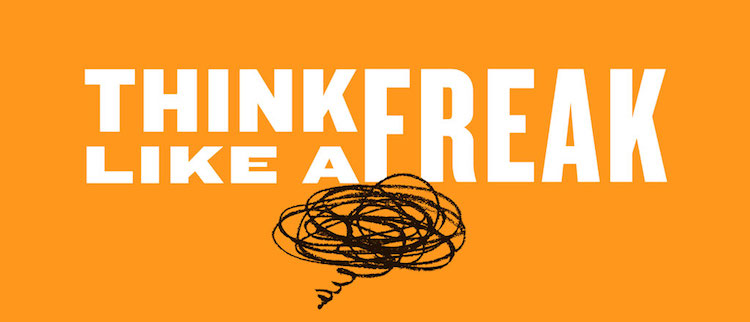Book Review: Think Like a Freak
Lately, I’ve been utterly fascinated with books that detail alternative ways of thinking and successful mindsets. I’ve become a student of social sciences, so something like Levitt and Dubner’s Think Like a Freak is right in my sweet spot. My first introduction to this world came by way of the Freakonomics podcast, and it’s a great start if you’re curious about how these guys think. It’s just a great listen in general. Once you into this bool, you’ll be very pleased. Let me explain.
I picked this up at the airport heading to Portugal and managed to read it in less than a week. I hadn’t read any of the other “Freakonomics” books but had enjoyed the podcast immensely over the past year. This was my chance to get a little deeper into the ideas behind such an interesting topic. Much of what makes this book great is the amazing stories.
The story of Takeru Kobayashi is an incredible example of thinking like a “Freak”. How he went from relative obscurity as a skinny Japanese speed-eating competitor to smashing the speed eating record at the Nathan’s Coney Island Hot Dog Eating Contest. This wasn’t because he made himself super strong or found a way to chew faster, it was his ability to think about the problem differently and find relatively simple ways to attack it and succeed.
Then there is the concept of admitting that you “don’t know” about things others seem so convinced about. This idea is so simple, but Levitt and Dubner lay out how difficult it is to find people that are willing to say they don’t know. I’m all too familiar with this concept in I.T. as the typical call to a vendor’s support centre yields some sort of positive spin on “You won’t get what you want”, but you’ll rarely encounter a “no” or “I don’t know” from them; Even from the lowest levels of the support ladder.
The book is, at its best, an attempt at teaching you how to think more quickly, more simply, and with more humility when encountering a problem-solving situation. That’s something we can all gain insight from, even if the book may not be life-changing (or you’re already familiar with some of the concepts herein). Thankfully, the stories are entertaining and at times eye-opening.
To be sure, success in this chaotic world requires that we exercise the ability to think “on our toes” or think fast around problems that seemingly change on a dime. Levitt and Dubner have given that a name, but the ideas here are not terribly revolutionary. That’s ok because as they point out time and time again, thinking like a “Freak” is incredibly rare.
A worthy book to add to your growing bookshelf or Little Free Library.
If you love books like I love books, then you’ll love my newsletter (it talks about the books I’m reading too). Subscribe here.


